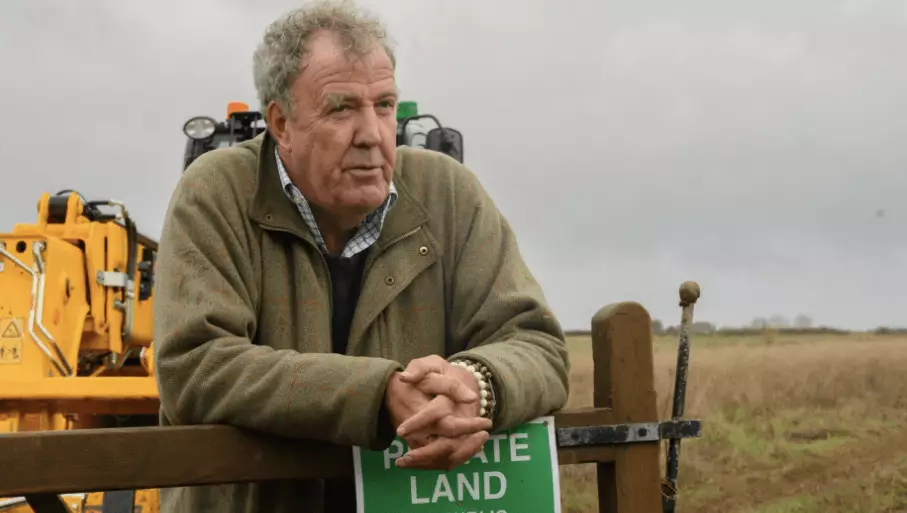Over the years, Jeremy Clarkson has established himself as a controversial figure, known primarily for his outspoken nature and irreverent humor. However, his latest venture into farming has prompted both admiration and skepticism. What started as a personal investment has transformed into a public spectacle, especially following the success of his Prime Video series, “Clarkson’s Farm.” Despite initial claims linking his purchase of Diddly Squat Farm to inheritance tax strategies, Clarkson’s subsequent revelations have sparked a renewed discussion about his motivations and responsibilities as a public figure.
Back in 2009, Clarkson candidly expressed his belief that investing in land was a savvy financial move, citing its potential to serve as a hedge against inheritance tax. This statement was eyebrow-raising; it branded him as a wealthy landowner cleverly maneuvering through the financial system. His previous assertion that “the government doesn’t get any of my money when I die” indicated not just financial savvy, but a certain arrogance typically associated with the elite class. However, this year’s protests against the government’s plans to levy inheritance tax on farmers have seen Clarkson recast his motives, suggesting the earlier narrative lacked authenticity.
In a recent interview, Clarkson confessed that his original reasoning for acquiring the farm was more simplistic and perhaps naïve than he had led on. Stating, “I wanted to have a shoot,” Clarkson inadvertently revealed a certain level of privilege and detachment from the hardworking farming community he now claims to champion. His admission that it was “a better PR story” to attribute his purchase to tax avoidance considerably alters the public’s perception of his intentions, bringing forth questions regarding transparency and sincerity.
As Clarkson has immersed himself in rural life, his advocacy for farmers has grown stronger, highlighting the struggles and burdens they face under government policies. He has emerged as a vocal critic of political figures who fail to understand the complexities of agricultural life, asserting that many policymakers are out of touch with the realities farmers confront. However, Clarkson’s recent claims that he would be a “terrible political leader” reflect an awareness of his limitations and a reluctance to transition from entertainer to politician.
This self-awareness is refreshing, though it does raise questions about the potential efficacy of celebrity influence in real-world politics. While Clarkson’s observations about farming resonate with many in the agricultural community, the effectiveness of his voice is complicated by his celebrity status. Is a former car enthusiast turned farmer the right messenger for agricultural issues? Or does his fame overshadow the legitimate struggles facing real farmers?
Jeremy Clarkson’s evolution from a TV presenter to an advocate for farmers represents a complex interplay of celebrity culture, personal investment, and social responsibility. His humorous approach to farming through “Clarkson’s Farm” has garnered immense popularity, yet it also demands greater accountability. As he navigates this new chapter, it is crucial for Clarkson to balance his fame with a genuine understanding of the agricultural community he represents. Only through candor and humility can he truly contribute meaningfully to the discourse surrounding farming policies and practices in the UK.

